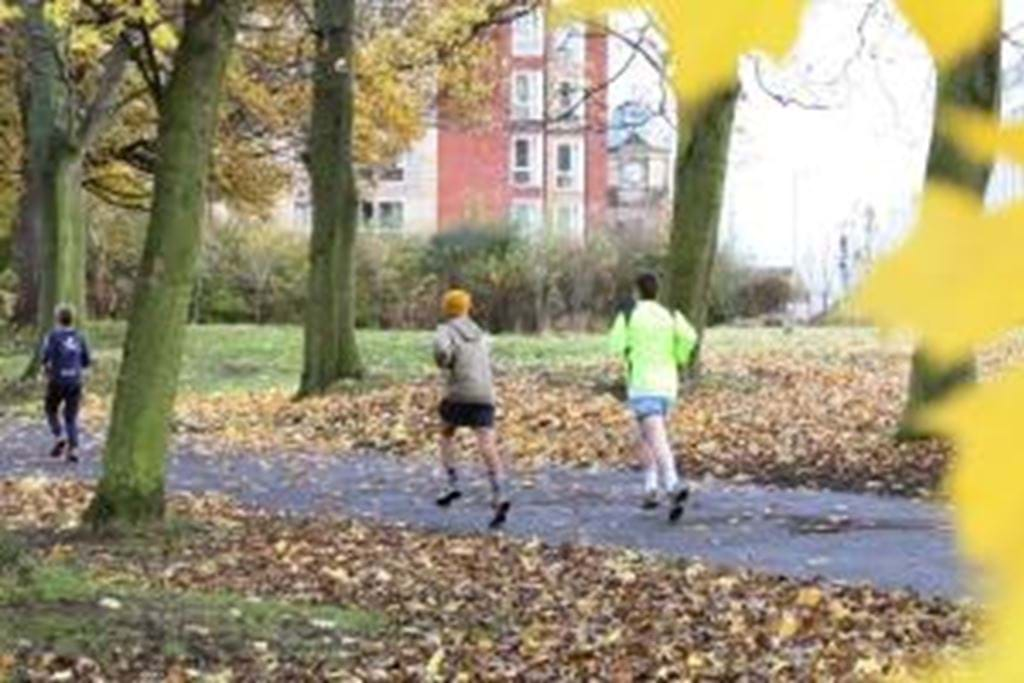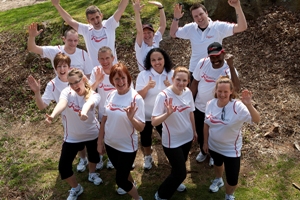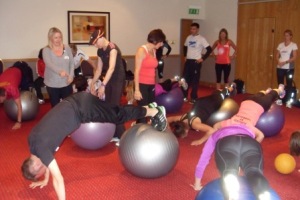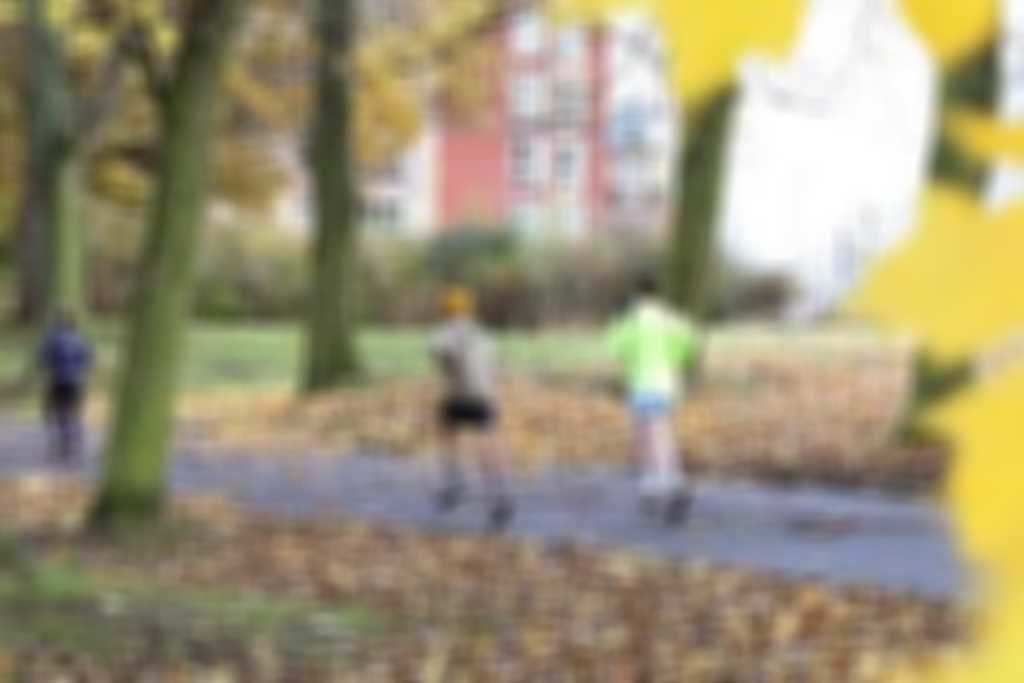Smash your parkrun PB!
21 September 2013

Have you done a parkrun lately? If so... Firstly, give yourself a pat on the back as we think it’s a great way to start the weekend! Secondly, although it may have been non-competitive and probably good fun, we’re betting most of you would like to improve your time!
Here are our top six tips to help you smash your parkrun personal best!
Make a plan: This might seem like a simple one, but introducing more structure to your running with the help of a qualified coach or group leader can bring you on leaps and bounds. But remember, first you need a goal – so think about what it is you want to achieve and why. Then, when it comes to setting out how to achieve that goal the important thing is to keep your plan progressive, while remembering to be realistic about what you can manage too. All Run England groups are led by qualified group leaders who will be happy to advise you. Group leaders can download plans from the group leader secure area of the website.
 Run with like-minded people: Most people find running easier when they’re doing it with others who share a similar level of fitness and similar goals. When you’re feeling down, they will motivate you. When you need help, they’ll give you advice. Runs often go by much quicker when there’s a social element, and with the nights getting darker, running with others gives added safety too. If you think the support of a Run England group will help you, use our group finder map to take your pick from more than 2,000 groups across the country.
Run with like-minded people: Most people find running easier when they’re doing it with others who share a similar level of fitness and similar goals. When you’re feeling down, they will motivate you. When you need help, they’ll give you advice. Runs often go by much quicker when there’s a social element, and with the nights getting darker, running with others gives added safety too. If you think the support of a Run England group will help you, use our group finder map to take your pick from more than 2,000 groups across the country.Run more: Again, this may be obvious, but it’s worth including. The simplest way to improve is simply to run more! You don’t have to start doing 100 plus miles a week like Mo Farah (in fact we strongly recommend that you don’t!), but increasing your workload from two to three runs a week, gradually increasing the length of your runs or including run/walk intervals to improve the quality is likely to result in an improvement in your fitness.
 To run more, try adding some variety. If possible, you could make a trip of it and try sampling some of the beautiful English countryside – the National Trust has running groups and 3-2-1 routes in many of the UK’s most special places. If you can’t get to a National Trust site, mix it up by trying a different route, but be sure to tell someone where you’re going and ideally take a friend with you. 3-2-1 routes are marked out routes of varying distances, so you know where and how far you’re going. Route details, amenities and accessibility are listed online on our route finder map.
To run more, try adding some variety. If possible, you could make a trip of it and try sampling some of the beautiful English countryside – the National Trust has running groups and 3-2-1 routes in many of the UK’s most special places. If you can’t get to a National Trust site, mix it up by trying a different route, but be sure to tell someone where you’re going and ideally take a friend with you. 3-2-1 routes are marked out routes of varying distances, so you know where and how far you’re going. Route details, amenities and accessibility are listed online on our route finder map.Remember to be careful and build up slowly to avoid injury. Invest in a good pair of running shoes (join Run England for free to get £15 off running shoes at Sweatshop) and following the next two points may also help you stay injury free...
 Remember the little things: As well as by running more, remembering to do the ‘little things’ can help you improve too. By this, we mean things like doing a proper warm up before running, stretching afterwards, and getting stronger – perhaps by going to a Pilates class or just doing a set of bodyweight exercises or circuit training in the park. Group leaders can download useful session plans, which include details on various exercises and warm up/warm downs in the group leader secure area section of our website. Click here to find out more about becoming a group leader. Additionally, eating a meal rich in carbs and protein shortly after exercise (ideally within 30 minutes) will help you recover by replenishing your glycogen stores and helping repair your muscles. Take a drink with you to your groups runs to ensure you stay hydrated too!
Remember the little things: As well as by running more, remembering to do the ‘little things’ can help you improve too. By this, we mean things like doing a proper warm up before running, stretching afterwards, and getting stronger – perhaps by going to a Pilates class or just doing a set of bodyweight exercises or circuit training in the park. Group leaders can download useful session plans, which include details on various exercises and warm up/warm downs in the group leader secure area section of our website. Click here to find out more about becoming a group leader. Additionally, eating a meal rich in carbs and protein shortly after exercise (ideally within 30 minutes) will help you recover by replenishing your glycogen stores and helping repair your muscles. Take a drink with you to your groups runs to ensure you stay hydrated too!Work on your form: A recent study pin-pointed the aspects of Mo Farah’s technique that have helped him win five global gold medals in the last two years. Don’t try straight away to run like Mo Farah, though, as, for example, switching to running up on your toes when you’re not used to it could result in injury. However, simple improvements like being more relaxed and focusing on keeping your movements going forwards and running tall, could make you faster, more efficient and prevent injury. Get a friend or your group leader to look at your form. They don’t have to be a biomechanical expert to help – if itlooks good, it probably is, and vice versa!

Find more events: For the ambitious ones amongst us, if you really want to take your running to the next level, one way you can get more running in is by branching out with the events you do. Progressing from a 5K or parkrun to a 10K or even half marathon may give you added motivation and help improve your fitness. Check out runbritain.com for a comprehensive list of events in the UK.
Good luck, and stay tuned over the next few weeks as we'll be offering more specific tips on topics like planning, nutrition and improving your strength to help you improve that parkrun personal best!
More news from RunTogether




